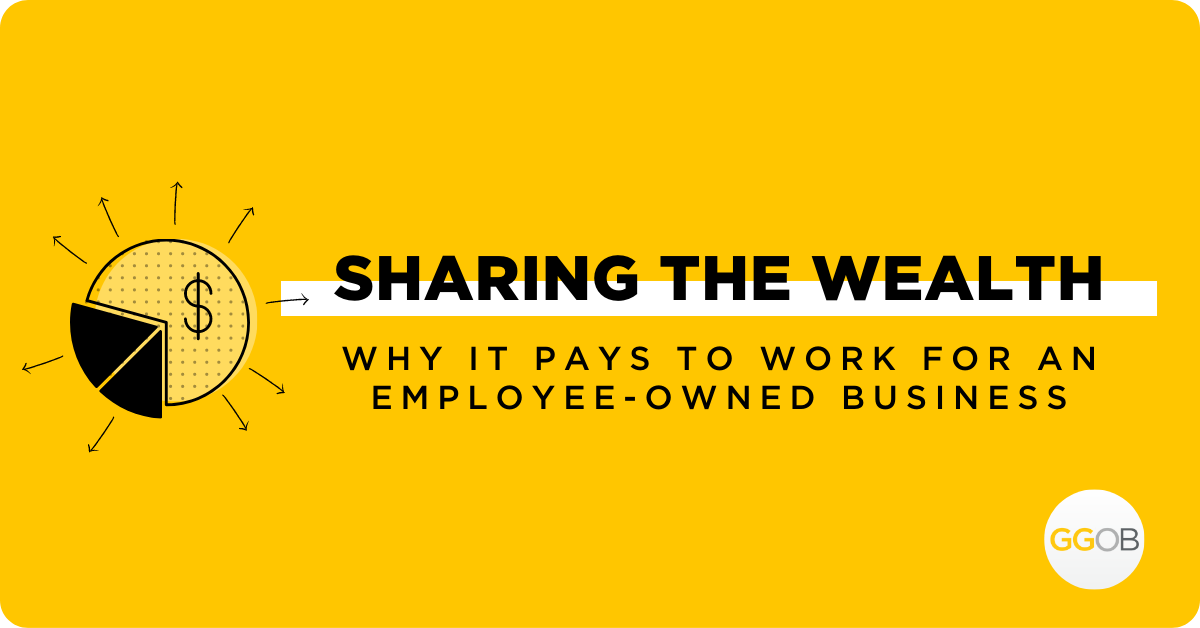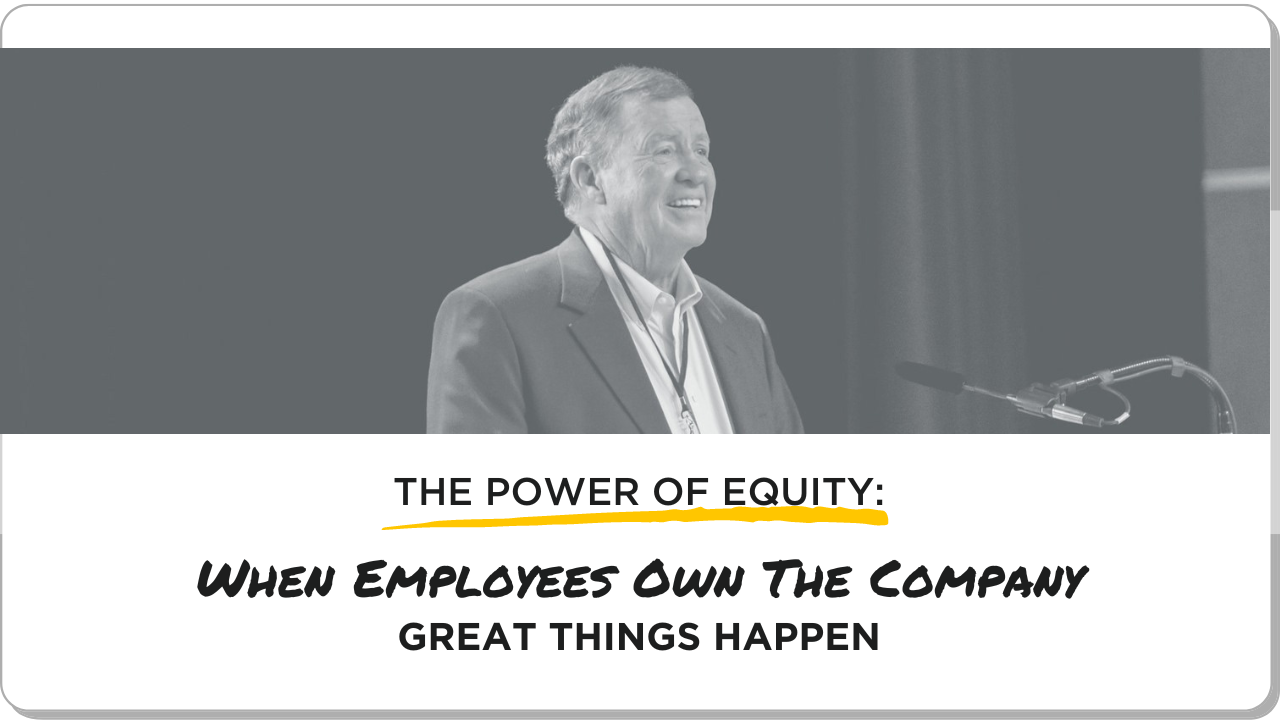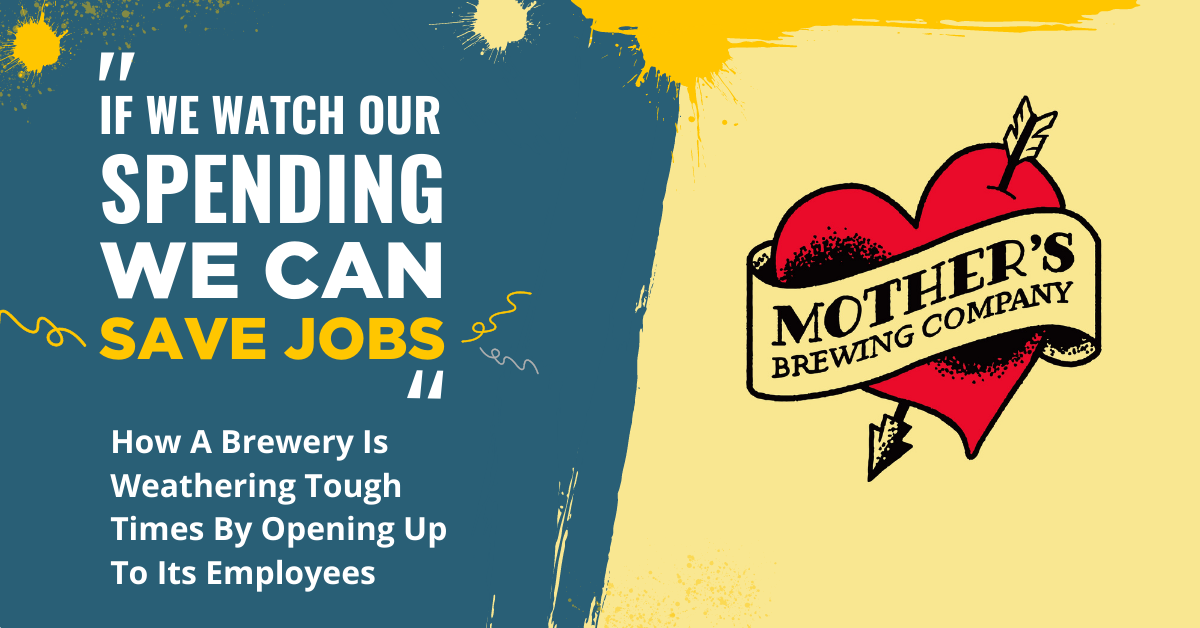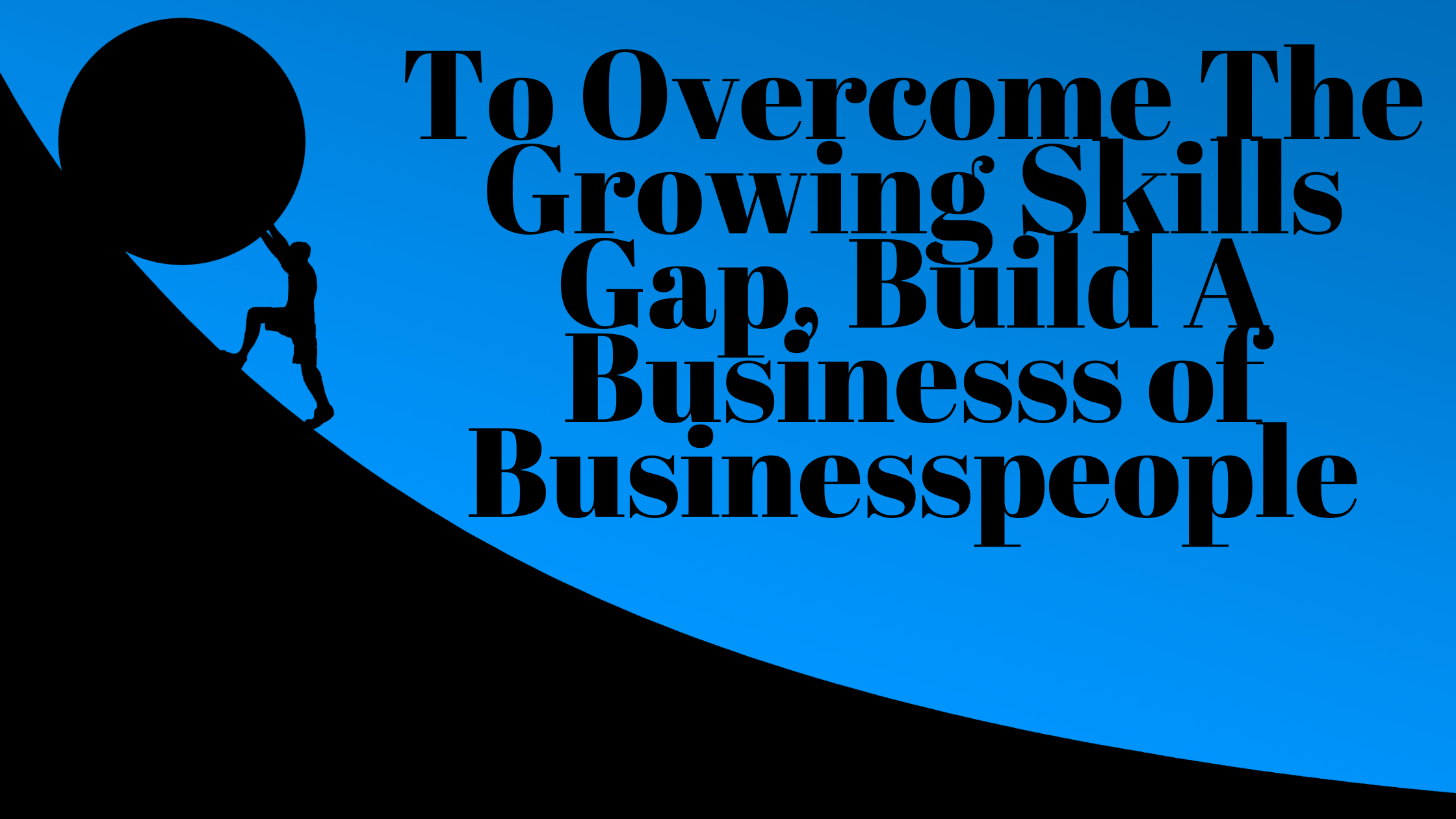I’ve wondered for a long time about whether leaders are born—or can they be made? I’ve seen a lot of so-called leaders come and go over the course of my decades of covering business as a journalist. One of my takeaways has always been that anyone using a position of authority or a big fancy title to tell people to do something doesn’t count as leading. That’s just top-down management. And, if I’ve learned anything from Jack Stack at SRC, it’s that people don’t want to be managed; they want to be led and inspired.
Read More
SRC Celebrates 40 Years In Business—And The Best Is Yet To Come The employee-owners of SRC have a lot to celebrate this year. Not only does 2023 mark the company’s 40thanniversary, but the ten businesses that comprise SRC Holdings continue to set records with their performance despite the challenges of high inflation, soaring interest rates, and continued supply chain challenges.
Read More
When the employee-owners of SRC Holdings gathered on the evening of Wednesday, June 15, 2022, for SRC’s 38th Annual Shareholder Meeting, you could feel the electricity in the room. Many of the company’s 2,000-strong workforce were in attendance—some with spouses, partners, and children in tow. Not only was everyone enjoying the ability to gather in person again, the company and its ten subsidiaries had been on a hot streak after a down year caused by the disruptions of the pandemic. Everyone was expecting big news because they were about to learn the updated share price of their company. They weren’t going to be disappointed.
Read More
There was so much promise for the post-pandemic economy—especially for the manufacturing sector. Many organizations continue to see an unprecedented surge in demand for their products—levels the economy hasn’t seen for 40 years. For many, it’s been a struggle to keep up with customer orders. It’s like trying to drink out of a fire hydrant to keep up with this kind of growth. The forecasts continue to look strong, too, as retailers and dealers increasingly look to insource and onshore production from overseas. The future of manufacturing in the U.S. looks brighter than it has in decades. Yet, there’s a catch. Manufacturers now have emerging pain points to contend with. Supply chains are stretched to their limits. Ships lay docked outside ports while there aren’t enough trucks or drivers to cart products away. Millions of dollars of finished goods may sit in warehouses for months awaiting parts worth mere dollars.
Read More
There's something special about the Midwestern town of Springfield, Missouri. It just seems to breed entrepreneurs. It's been the launching pad for household names like Bass Pro Shops and O'Reilly Auto Parts, among others that help power the nation's economy. Maybe there's something in the water. Or perhaps it's tied to the can-do attitude of generations of farmers raised in the area. While Jeff Schrag wasn't born in Springfield—he moved there in 1995 after he bought a newspaper based there, The Daily Events, a legal notice publication—he's what you might call a "serial entrepreneur." Among his many ventures, he has started a business that sells cufflinks, one that offers coloring books, and he's also rehabbed and flipped real estate.
Read More
Start By Dispelling Three Common Management Myths: Lessons From The Great Game of Business People are quitting jobs at a rate like we’ve never seen before. In what’s become known as “The Great Quit” or “The Great Resignation,” millions of workers are leaving their jobs every month. When you combine that with the flood of retiring Baby Boomers, we’re witnessing a seismic reshuffling of the work force. Even Santa Claus is in short supply. What’s even more stunning is that this might be just the beginning. Research from Microsoft and Gallup finds that some 41% of the global workforce, and nearly 50% of employees in the U.S., are actively looking for a new job. As many (if not most) employers now scramble to keep their existing people—let alone recruit new employees—it’s created a new emphasis on answering the question: Why are so many workers quitting?
Read More
Deciding what your company wants to be when it grows up should be a team effort. We continue to live in unprecedented times. Nothing seems predictable, and it's just about impossible to get anyone to agree to a consensus. Take inflation as an example. While plenty of economists continue to forecast that inflationary pressure is a temporary product of strong demand and snarled supply chains, others point to skyrocketing prices as evidence that an inflationary wrecking ball is already at work wreaking permanent economic damage. Tracking issues like these regularly makes it easy to get lost in the day-to-day weeds.
Read More
How the founders of Chillibreeze pursue their purpose: “We Start Every Day With Gratitude.” It was a Christian mission that first brought Joanna and Ralph Budelman to India in 1995. Their lives, and those who work with them, have never been the same since. The couple, who grew up in Louisiana and Illinois, respectively, share a deep belief in the power of entrepreneurship to create positive change in the world. After arriving in India, they founded the first of what would eventually become a series of businesses over the subsequent ten years that have created great jobs for people in the communities they have lived and operated in.
Read More
The real crisis organizations face is a shortage of employees capable of thinking critically and making tough decisions. The writing was on the wall for everyone to see. There’s a mass exodus underway in the workforce as some 10,000 Baby Boomers turn 65 every single day. The result is that the number of Boomers in the workforce has dropped by 2.2 million every year since 2010—or an average of 5,900 people a day. That leak won’t stop anytime soon since by 2030, all Baby Boomers will be 65. The problem is that plenty of people missed the signs of this trend—and now they’re paying the price as the number of openings exceeds the number of available workers willing to apply for new jobs. The challenge is exacerbated for those companies looking to hire for specific skillsets.
Read More
In 2018, the executives at banking giant Wells Fargo issued a new strategy for their business: the overall goal was to create long-term banking relationships with their customers. And to measure how well the company was executing on that strategy, they began tracking “cross-selling.” In other words, employees would be measured, and rewarded, based on the number of different accounts—from deposits and credit cards to auto loans and mortgages—a customer opened with the bank. The CEO at the time even coined a slogan: “eight is great” to illustrate the optimum number of accounts a customer might have with the bank. On paper, you could argue that the more accounts a customer had would likely equate with a longer-term relationship with the bank. But, if you’ve been paying attention to the news for the past few years, you know that things went spectacularly wrong.
Read More

.png)




.png)










.png)




-5.png)

